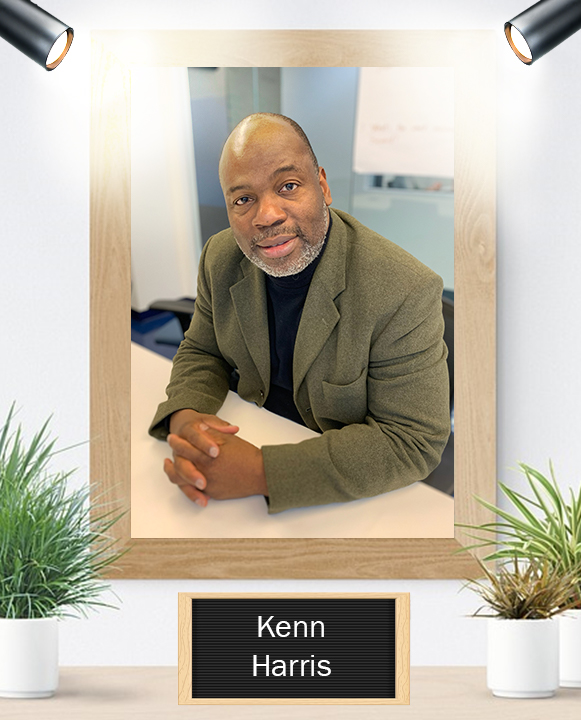NICHQ Employee Spotlight: Kenn Harris
 Full Name and Title
Full Name and Title
Kenn L. Harris, Senior Project Director
Time with NICHQ:
7 Months
How has your background/experiences led you to join a national children’s health organization?
I’ve been part of the Federal Healthy Start Program since it began in 1991, so I have almost 30 years of experience working on a national initiative for maternal and child health, community engagement and infant mortality. Healthy Start is a community-based federal program seeking to eliminate disparities in infant mortality and perinatal outcomes by working in communities across the country to improve systems of community care. I started my work in Boston at the Boston Healthy Start Initiative, then spent 20 years directing the New Haven Healthy Start program at the Community Foundation for Greater New Haven in New Haven, Connecticut. I’ve also done national work and research around men’s health and fatherhood during that time.
Favorite moment on a NICHQ project:
The Healthy Start program is new to NICHQ and being brought on to launch this program has been exciting. Although the program is new to NICHQ, the work in maternal, child and infant health is not, and I’ve enjoyed helping to establish the Supporting Healthy Start Performance Project at NICHQ.
Biggest lesson-learned when working on a quality improvement project:
There are so many lessons learned, but I think one of the big ones for me is about “inclusion” and making sure that you’re including people along a continuum when implementing a QI project. Whether it’s researchers, implementers, or those receiving services, it’s important to have a plan that includes everyone in the design process and to do so as early as possible. Sometimes people implement strategies and approaches, but they don’t work because they didn’t realize who they are working with nor understand the conditions that existed that created the challenges.
Funniest thing that ever happened on a NICHQ project:
My team and I were preparing our first webinar conversation with our federal funders for Healthy Start. Here at NICHQ, we are very professional with our conversations and experts at hosting high level webinars. Our team practiced the webinar, tested the technology beforehand, and made sure everything worked. It did! But during the call, things went awry. The microphone wasn’t working properly, so those on the call couldn’t hear us, and we couldn’t hear them. For about seven minutes, we went crazy thinking we were messing up our first call! It certainly wasn’t funny when it was happening, but it is after the fact and we joke about it all the time when we are preparing for a webinar call. It just goes to show you that even when you plan and do your best, things can always happen.
What are you most proud of from your time with NICHQ?
As a certified trainer, I’m most proud of any opportunity to lend my expertise around equity, racism and diversity. The opportunity to make contributions outside of Healthy Start really helped me feel welcomed at NICHQ and part of the broader vision. I’m proud of the leadership of the organization and their dedication to have conversations around equity and thinking about what that looks like in our work here. We are on a path towards equity, and I feel like I was a part of that by helping guide NICHQ’s approach towards an equity journey.
What are your goals for NICHQ’s future?
A goal for NICHQ is to continue to focus on aligning all our initiatives to ensure that each initiative has an equity lens and is strengthened to do the deeper work associated with addressing inequities. This will ultimately create an equity practice that helps us demonstrate impact at the end of the day. Having a national initiative as large as Healthy Start gives us the opportunity to demonstrate impact as a result of implementing an equity strategy. We need to push all our initiatives to go beyond just saying that they are looking through an equity lens, and instead be challenged to think what that means and what the lens look like. And once you look through it, what are you doing? It’s important to ask questions that push organizations to be accountable in regards to what they are doing around equity. Equity is so easy to talk about, but we want to get to the depth of equity. This involves addressing inequities and what causes them in the first place, which gets us right to racism. I’m looking forward to deeper conversations on our projects at NICHQ as we increase our integrity around our work towards equity.
